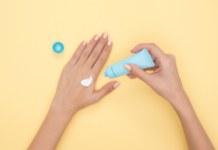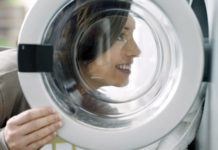When it comes to our work, going home with a few stains here and there is quite inevitable. While some of them happen by accident, we also have our own gawkiness to blame for a handful of those stains. No matter how they end up on your uniform, getting rid of these stubborn stains is a must in order to maintain a professional appearance and to keep your patients safe.
Before you throw any of your uniforms away, here are some of the most effective stain removal tips you can try first.
Blood Stains
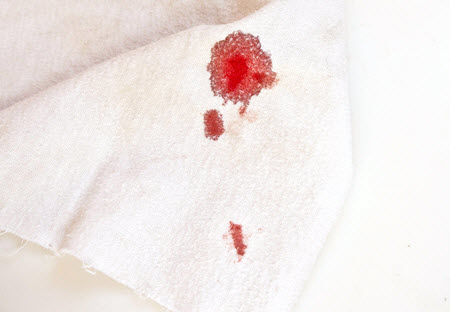
• Avoid using hot water in removing blood stains. Hot water can cook the blood which can make stain removal even harder for you. Stick with using cold water instead.
• If you are dealing with your white uniform, applying bleach or even hydrogen peroxide directly on the stain can do the trick. Keep in mind that these cleaning agents aren’t recommended on colored scrub suits.
• Pouring a small amount of vinegar on the stain can help lift the blood off of your uniform. If the blood has already set, you can try soaking the affected area in vinegar until the stain disappears.
• It might turn you off, but spitting on your uniform can also help remove blood stains. Your spit contains an enzyme that helps break down blood.
• Lemon juice works well on fresh blood stains. If the blood has already set in, squeeze some lemon juice on your uniform and take it out under the sun. Adding a sprinkle of salt to the juice hastens the process.
Also Read: 25 Life Hacks Every Nurse Should Know
Ink Stains
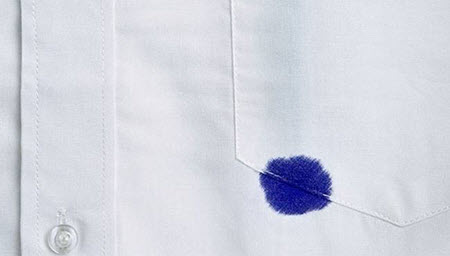
• Rubbing alcohol works wonders on fresh ballpoint pen stains. Saturate the affected area with alcohol first for around 30 minutes and use a sponge or cotton ball soaked in cold water to lift it up after. Make sure you have another layer of cloth underneath the stained area to avoid spreading the ink to the other side.
• You can also use plain toothpaste for ink stains. Allow it to sit for half an hour before washing it off with cold water. Try to rub the toothpaste as you’re rinsing it.
• It’s a bit unusual but alcohol-based hairsprays can handle ink stains too. Spray it on the stained area a couple of times or until the affected fabric is saturated with hairspray. Take a sponge soaked in cold water and dab it on the area.
• Soak your stained scrub suit in milk overnight and wash as normal the next day.
• Another trick is to mix baking soda with water. Rub the mixture on the fabric until the ink stain gets removed.
Medication Stains
• When dealing with oil-based medications, you can use baby powder to get rid of the grease first. Once the grease is out, it will be easier for you to wash the stain off. Another good option is to allow a small amount of detergent powder or dishwashing soap to sit on the stain first prior to washing.
• For alcohol-based medications, simply pre-treat the stain with a good detergent and rinse with cold water.
• In case of ointment stains, try to scrape off any excess ointment first before sprinkling cornstarch on the area. Rub it in until the stain gets completely covered. While rubbing, make sure to avoid spreading the stain. Leave the cornstarch until the grease gets absorbed completely. Brush the powder off before washing your scrub suit in cold water.
Also Read: 10 Tips & Tricks to Keep Your Nursing Scrubs in Great Shape
Coffee Stains
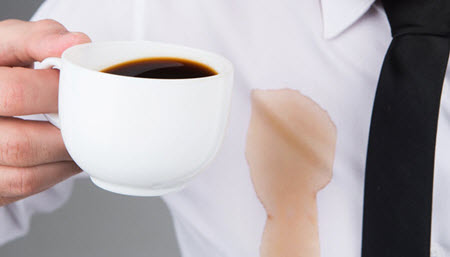
• If you get coffee on your uniform, blot it right away with tissue paper to absorb the excess fluid. Aside from tissue paper, you can also use baby wipes. They are slightly damp and have a mild gentle soap content which can help clean your uniform.
• Another trick is to mix 1 part vinegar with 2 parts water and use a sponge to scrub the mixture to the fabric. Wash as usual.
Vomit Stains

• To take care of vomit stains, you need to pre-treat your uniform prior to washing it. If you find the smell a bit repulsive, you can rub a small amount of baking soda on the stain prior to pre-treatment.
Urine Stains
• Strong urine can leave a stain on your uniform so make sure you address it right away.
• In removing the stain, you can pour a small amount of hydrogen peroxide on it. As soon as the bubbling stops, rinse the affected part to avoid damaging the fabric.
• You can also mix ¼ cup of baking soda with your detergent.
General Disinfection Tips
Cleaning and washing aren’t enough when it comes to scrub suits. For safety, you need to make sure they’re disinfected before you put them on for your next shift.
Here are a few life hacks you can try:
• When washing your scrub suits, separate them from your regular clothes or from the clothes of the rest of your family members. This way, you can avoid spreading the microorganisms you got from the hospital.
• To prevent wear and tear, reserve your scrub suit for work alone. Change into them only when you’re in your place of work and make sure to change first before running any extra errands after your shift.
• Treat any stains before throwing your uniform into your washer.
• As much as possible, run your scrubs through two wash cycles. Turn them inside out for the first wash and run a second wash cycle as how you’d normally wash them.
• Press your scrubs using a hot iron. Aside from helping you maintain a well-kept appearance, it also helps kill germs.
• Avoid using hot water on your scrub suits. It will not only set several types of stain on the fabrics, but it can also decrease the life of your uniforms.
• Add a disinfecting agent when washing. For white scrub suits, you can use chlorine bleach. When dealing with colored uniforms, use a phenolic disinfectant instead.
How do you remove stains from your scrubs? Are there any tricks you can add to the list?




